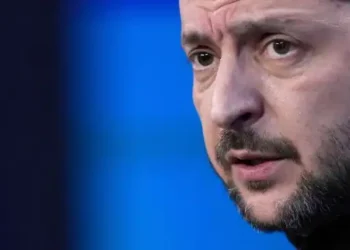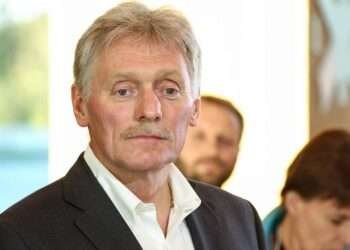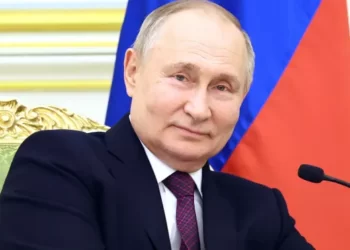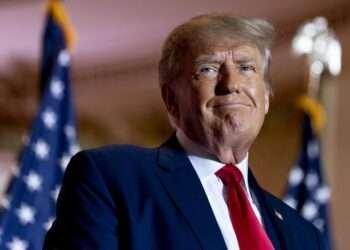France’s Foreign Ministry, on Thursday, May 12, 2022, demanded the “immediate release” of two French nationals detained in Iran.
The request made by the French Ministry came after Tehran’s (Iran’s capital) Intelligence Ministry announced that it has arrested two Europeans for attempting to “destabilise” the country.
In a statement by the Foreign Ministry, it noted that “The French Government condemns this baseless arrest. It calls for the immediate release of these two French nationals”. The Ministry said France’s Ambassador in Tehran approached Iranian Authorities to obtain consular access, adding that it summoned Iran’s representative in Paris.
The pair were accused of “organising chaos and social disorder aimed at destabilising (Iran)” in conjunction with Foreign Intelligence Services, Iranian state TV cited the Ministry, without revealing their nationalities.
Earlier on Thursday, May 12, 2022, a French Teachers’ Union said one of its members had gone missing while on holiday in Iran with her partner. Federal Secretary of the FNEC FP-FO Union, Christophe Lalande, revealed that there was no news from his staffer, who was due to return to France earlier this week. “We cannot be certain, but there is a strong presumption that she was detained in Iran while holidaying in the country during the Easter break”, Lalande disclosed to reporters.

A Similar Situation at Hand
Reports have suggested that two other French nationals are held in Iran on national security charges, which their lawyers pointed out to be politically motivated.
Rights groups accused Iran of trying to extract concessions from other countries through such arrests, but Iran has repeatedly dismissed the accusations. Western powers have long demanded that Tehran free their citizens, who they say are political prisoners.
In January 2022, an Iranian court sentenced French national, Benjamin Briere, to eight years in prison on spying charges. But his Paris-based lawyer described the trial as a politically motivated sham, adding that the Iran authorities used his client as a “bargaining chip”. France warned Tehran in the past that the way it is handling the cases of its nationals held in Iran could sour ties.
Nuclear Talks on Hold
According to the Iranian media, news of the arrests on Wednesday, May 11, 2022, coincided with a visit to Tehran by the European Union’s Iran-Nuclear-Talks Coordinator, Enrique Mora, who held talks with his Iranian Counterpart, Ali Bagheri Kani. Iran’s Foreign Minister, Hossein Amirabdollahian, noted in a Twitter post that Tehran wanted US sanctions lifted “with the observance of Iran’s red lines”. Negotiations are pursued … to reach a good, strong and lasting agreement”.
Presiding over an economy crippled by the US sanctions, Iran’s clerical establishment has faced near-continuous protests by workers, teachers and government employees in recent months over unpaid wages, high unemployment, inflation exceeding 40% and mismanagement. Talks to revive the 2015 accord are on hold primarily over Iran’s insistence on Washington removing the Islamic Revolutionary Guard Corps (IRGC), Tehran’s elite security force, from the US Foreign Terrorist Organization (FTO) list.
The Workings About the IRGC
IRGC was set up on May 5, 1979, to defend the country’s Islamic system, and to provide a counterweight to the regular armed forces.
As a result, it has become a major military, political and economic force in Iran, with close ties to the Supreme Leader, Ayatollah Ali Khamenei, and many other senior figures. The IRGC is estimated with more than 190,000 active personnel, which boasts of its ground forces, navy and air force, and oversees Iran’s strategic weapons.
Again, in 2015, Iran agreed on a long-term deal on its nuclear programme with a group of world powers known as the P5+1 – the US, UK, France, China, Russia and Germany. It came after years of tension over Iran’s alleged efforts to develop a nuclear weapon. Iran insisted that its nuclear programme was entirely peaceful, but the international community did not believe that. Under the accord, Iran agreed to limit its sensitive nuclear activities and allow international inspectors, in return for the lifting of crippling economic sanctions.
But, the then-US President, Donald Trump, ditched the pact in 2018 and reimposed sanctions on the Islamic Republic, prompting Tehran to retaliate by gradually violating the deal’s nuclear curbs.
READ ALSO: Researchers find Alternative to Manage Potentially Destructive Pests





















